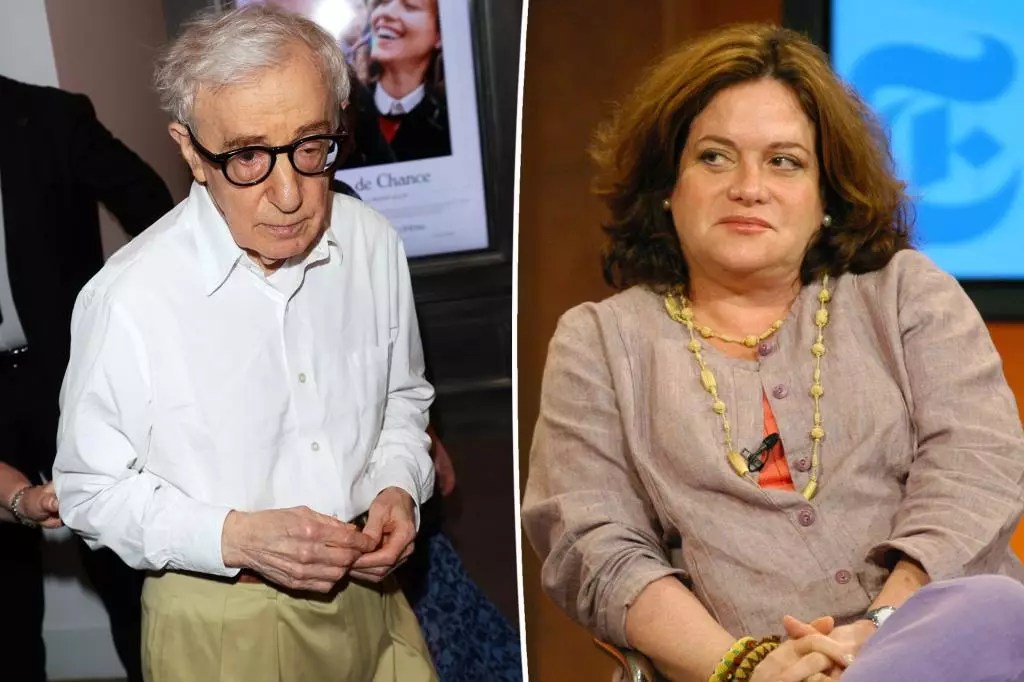In a world increasingly shaped by movements rooted in accountability and disclosure, the unexpected presence of Woody Allen at a high-profile literary event reverberated through the social milieu of New York City. Known for his prominent presence in the entertainment landscape, Allen has been largely absent from public gatherings since allegations of misconduct emerged during the #MeToo movement. His unexpected appearance at a cocktail party hosted by literary figure Daphne Merkin raised eyebrows and sparked discussions among attendees about the complexities of societal reacceptance and the ongoing fallout of past transgressions.
The occasion, celebrating the launch of a new literary magazine by the sex app Feeld, attracted a wide array of guests from the literary and entertainment worlds. Touted as the dating app for those curious about diverse romantic configurations, Feeld aligns perfectly with the launch of its bi-annual publication, cleverly titled “A F**king Magazine,” or “A Feeld Magazine,” depending on one’s interpretation. This duality reflects the modern approach toward intimacy and connection in a society that often finds itself torn between traditional values and evolving notions of relationships.
The magazine, featuring contributions from prominent authors like Jazmine Hughes and Susanna Moore, aims to address the nuances of human relationships and the quest for happiness. Hosted in an upscale Upper East Side venue, the event was abuzz with intellectual discussions, culminating in readings that underscored the evening’s literary focus. The event served as a nexus where literature collided with modern dating culture, raising questions about authenticity, self-expression, and the relentless pursuit of fulfillment in a complex world.
Despite his polarizing past, Allen was met with a mixture of surprise and ambivalence as he mingled with guests, showcasing the often-contentious relationship between artistic legacy and personal accountability. Merkin’s longstanding friendship with him provides a rich backdrop to the event, reflecting how ties to controversial figures often complicate community dynamics. As he engaged amicably with fellow attendees, his presence served as a reminder that the entertainment industry is grappling with how to reconcile past behaviors with contemporary values.
Meanwhile, the laughter and engagement from participants at the event signified that the literary world continues to push boundaries despite the presence of societal shadows. Guests such as Candace Bushnell and Paula Froelich contributed to the rich tapestry of conversations, demonstrating a shared commitment to exploring the complexities of modern narratives surrounding love, identity, and happiness.
The juxtaposition of Allen amidst the fervor of literary creativity raises essential questions about the space that controversial figures can occupy in contemporary discourse. As conversations evolve around acceptance and change, the launch of such an ambitious magazine illustrates a cultural landscape in contention—balancing nostalgia for artistic contributions against the necessary scrutiny of past actions.
Ultimately, the event serves as a microcosm of broader societal discussions, where literature, relationships, and personal histories intersect. As the issue hits the newsstands, it invites readers to reflect on their personal narratives within the wider fabric of human experience—filling the pages with stories that challenge and inspire.


Leave a Reply